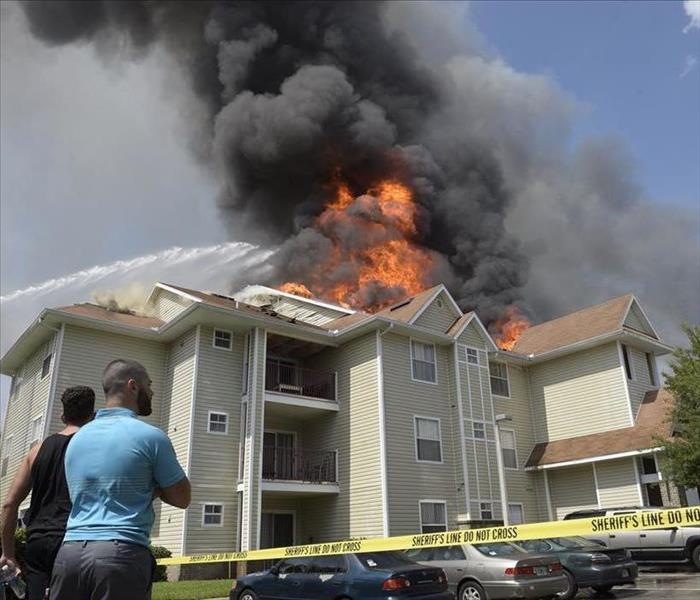Fire Insurance for Owners of Rental Properties
3/4/2021 (Permalink)
 Coverage varies with fire insurance policies and it is important for property owners to select the right policy for their property.
Coverage varies with fire insurance policies and it is important for property owners to select the right policy for their property.
Dwelling Fire Insurance Dwelling fire insurance coverage offers a narrower type of coverage when compared to a standard homeowners policy. It is fire insurance designed to be focused on property damage. These policies can provide coverage for structures a person owns other than their home.
Flexibility
Property owners have a wide variety of coverage options with dwelling fire insurance. It's not limited to damage that is related to fire and smoke. Many policies provide coverage similar to a standard homeowners insurance policy. They can provide protection against hazards associated with weather such as lightning, and wind, explosions, vandalism, and more. Dwelling fire insurance will only cover specific perils listed in the policy.
Benefits
This fire insurance coverage is designed to protect the entire dwelling as well as structures on the property. It may cover personal belongings depending on if the policy is basic or broad. A policy could reimburse in the form of cash value or replacement cost. With cash-value coverage, a policyholder will get cash reimbursements for the repair-cost from a partial loss or a total loss. With replacement cost, the property will be replaced with a like-kind property at the current market price.
Dwelling Fire Coverage
- There are certain situations where dwelling fire coverage is the best option.
- Those who own a home that does not have much cash value. This could be an older home, manufactured home, or mobile home.
- Landlords who want to insure a building they own, but not the possessions inside of them.
- Individuals who own properties that aren't occupied full time. This could be a second home, seasonal home, rental property, and more.
- Individuals who own property that is being renovated or is under construction.
Extended Coverage
With dwelling fire coverage there is extended coverage. It would cover more things than are in the basic coverage.
- Volcanic eruptions
- Hail or windstorms
- Smoke
- Other explosions
- Aircraft or vehicles
- Riot/civil commotions
Fair Rental Value/Additional Living Expenses
This is a combined coverage. It will cover a policyholder for the loss of use of a dwelling as well as the loss of rental income due. Should a building that is rented be unable to be occupied, this coverage will provide protection for the loss of rental income. It will extend up to the limit of the policy. If a property can't be rented because the owner is forced to use the house, they will be reimbursed for the additional living costs associated with being unable to live in their own home. This is covered under additional living expenses.
Most Comprehensive
The most comprehensive policy is an all-risk or open perils policy. This means real property, such as dwellings and other structures, will be covered for all types of damage. The exception will be any exclusions specifically named in the policy. The damage to personal property, the items inside a dwelling, and other structures are usually covered on a named perils basis. There are some common exclusions.
- Earth movement such as an earthquake
- War
- Certain types of water damage
- Laws and ordinances
- Rot, mold, rust, and other gradual losses
- Neglect
Liability
Coverage for personal liability will pay for any legal damages awarded to a third party should the policyholder be found liable for damage as well as bodily injuries. It is also able to help pay for attorney fees and the court costs associated with a covered loss.
An insurance professional can help determine the best deductible for a policy that addresses a property owners' individual situation. This is the out-of-pocket expense a policyholder is responsible for paying before their coverage starts. It is possible to have a lower premium by increasing a policy's deductible. Fire insurance is usually part of a property owner's desire to minimize their risk. An insurance professional can also help identify the risk associated with a property and recommend the best possible insurance coverage.





 24/7 Emergency Service
24/7 Emergency Service